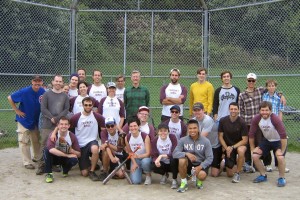March 8, 2015
Dear Provost Regehr,
We are faculty members in the Tri-Campus Department of English. We believe that the University of Toronto administration’s policies on graduate student funding have created a crisis, and have provoked the current strike by the members of CUPE 3902. We write in support of the union’s demand that the funding packages for graduate students be raised.
In our view, the guaranteed funding package is wholly inadequate. As has been widely noted, this sum is significantly below the poverty line for Toronto. Moreover, the sum has remained static since 2008. This has created real financial hardship for many of our students, and increasingly functions as an obstacle to the recruitment of excellent graduate students.
The members of Unit 1 of CUPE 3902 are our students and our future colleagues. We urge that you act quickly to settle this strike before it causes any more damage to the university, its students, and its reputation as a leading institution for teaching and research.
We would be happy to meet with you to elaborate on these points.
Sincerely,
Deirdre Baker
George Elliott Clarke
Paul Downes
Uzoma Essonwane
David Galbraith
Marlene Goldman
Audrey Jaffe
Daniela Janes
Smaro Kamboureli
Mark Knight
Katie Larson
Garry Leonard
Jennifer Levine
Victor Li
Roy Liuzza
Lynne Magnusson
Alice Maurice
Naomi Morgenstern
Andrea Most
Heather Murray
Mary Nyquist
John O’Connor
Julian Patrick
Carol Percy
Stanka Radovic
William Robins
Marjorie Rubright
Chester Scoville
Dana Seitler
Matthew Sergi
Philippa Sheppard
Paul Stevens
Cheryl Suzack
Larry Switzky
David Townsend
Daniel Scott Tysdal
Karina Vernon
Ira Wells
Dan White
Sarah Wilson
Brent Wood
* * *
